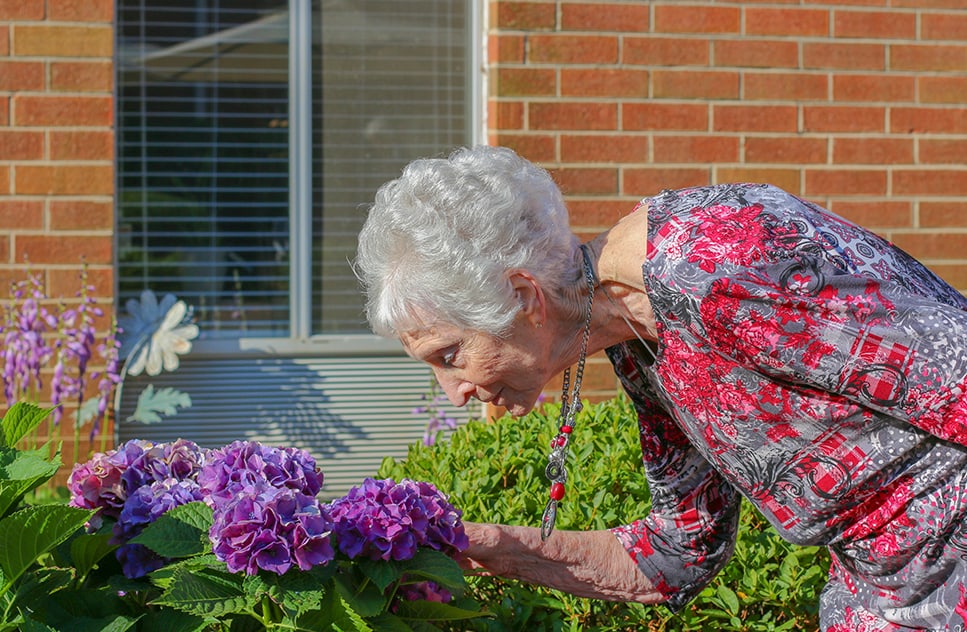Aging as a couple brings unique joys and challenges. One potential challenge comes when partners don’t age the same way. As individual circumstances prompt lifestyle changes, there may come a time when only one spouse requires extra support, such as the amenities of a senior community.
Navigating life when only one spouse needs assisted living is a delicate and emotionally complex situation for loved ones and their families. It requires thoughtful decision-making, open communication, and understanding.
Understanding the Need for Assisted Living for One Spouse
The decision for one spouse to transition into assisted living can stem from various factors related to health and well-being. Assisted living offers a safe and supportive environment for those with mobility challenges, minor cognitive decline, or the need for help with daily activities.
Meanwhile, the healthier spouse may still be independent and capable of managing their daily routine, making shared options like nursing homes unnecessary. This situation is common among older couples, and many assisted living communities today offer tailored services that make this transition easier for everyone involved.
Navigating the Decision-Making Process
Deciding to move one partner into assisted living can be emotionally charged for couples and their families. Here are key ways to help guide the process:
- Engage in open communication: Begin by having an honest conversation with both your spouse, other family members, and medical professionals. Discuss your and your spouse’s needs.
- Consult professionals: Geriatric care managers, senior living advisors, or doctors specializing in senior health can offer invaluable insights into possible solutions based on a couple’s circumstances.
- Tour a senior living community together: Visit an assisted living community as a couple in order evaluate the options and choose one that aligns with your lifestyles, care needs, and preferences.
- Consider proximity: Finding a senior living community that allows you and your partner to remain close together is an important factor.
Benefits & Challenges of Assisted Living for One Spouse
Moving one partner into assisted living brings unique benefits as well as challenges:
- Tailored care: Assisted living provides round-the-clock support for the partner who needs care.
- Relief for the caregiver spouse: The more independent spouse can focus on their well-being while knowing their partner is in good hands.
- Improved quality of life: With professional assistance, a spouse in assisted living can thrive, engaging in social and recreational activities suited to their abilities.
- Living separately: Adjusting when living apart can be emotionally difficult for couples who have spent decades together.
- Maintaining connection: Find proactive ways to make sure the bond remains strong, even if circumstances dictate physical separation.
Tips for Maintaining a Strong Relationship

If living apart, it’s essential to focus on the bond that keeps you and your spouse emotionally connected. Here are some practical tips:
- Prioritize regular visits: Plan visits to the assisted living community as frequently as possible to maintain closeness.
- Schedule activities together: Many assisted living communities offer shared programming for couples to dine, attend events, and socialize together.
- Communicate daily: Set aside time for meaningful communication each day, such as phone calls, video chats, or even writing letters.
- Celebrate milestones: Celebrating special occasions like anniversaries and holidays should continue to sustain a sense of normalcy and shared joy.
Alternatives to Traditional Assisted Living for Couples
If traditional assisted living doesn’t feel like the right fit, some options may better suit your family’s needs:
- Couples apartments in senior living communities: Many senior living communities have housing solutions that allow couples to live together. One spouse can receive specialized care, while the other can live independently.
- Continuing care retirement communities (CCRCs): These communities offer independent living, assisted living, and skilled nursing care within the same campus, allowing couples to remain close regardless of their care needs.
The Case for Senior Living
While aging in place might seem appealing, transitioning into senior living provides benefits that can’t always be achieved at home. Professionally trained staff, access to medical care, socialization opportunities, and stress relief for a partner are just a few reasons why senior living communities often lead to a better quality of life for families facing this transition.
Finding the Right Solution for Your Loved Ones
Deciding to move one spouse into assisted living is never easy. But it’s often the right decision for their health, safety, and happiness. By discussing the options openly, engaging professionals, and focusing on maintaining connection and quality of life, couples can successfully step into this next chapter together.
If you’re unsure where to begin or need support finding the right senior living community for your loved ones, contact Kingston Residence of Hickory for personalized guidance. Senior living can be a positive and meaningful stage of life, and our tailored care is key to making it so.






